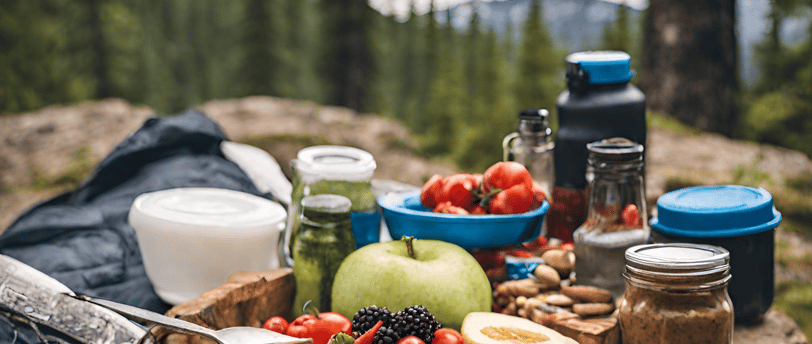Fueling Your Adventure: Proper Nutrition for Long Day Hikes
Nutrition for Top Performance While Hiking
TRAVEL INFORMATIONHIKING & CAMPING GEAR
6/16/20243 min read


Embarking on a long day hike is an exhilarating experience, allowing you to explore stunning landscapes and challenge yourself physically and mentally. However, to make the most of your adventure and ensure you have the energy and endurance to tackle the trail, proper nutrition is essential. In this guide, we'll explore the importance of fueling your body for long day hikes and provide tips on how to maintain optimal nutrition throughout your journey.
Why Nutrition Matters: Nutrition plays a crucial role in fueling your body for the demands of a long day hike. As you trek through rugged terrain and climb steep slopes, your body requires a steady supply of energy to sustain endurance and muscle function. Proper nutrition not only provides the fuel needed to power your hike but also helps prevent fatigue, dehydration, and muscle cramps, allowing you to enjoy the adventure to its fullest.
Key Nutrients for Long Day Hikes: Before diving into specific food recommendations, let's discuss the key nutrients your body needs for optimal performance during a long day hike:
Carbohydrates: Carbohydrates serve as the primary source of energy for endurance activities like hiking. Choose complex carbohydrates such as whole grains, fruits, vegetables, and legumes, which provide sustained energy and help maintain blood sugar levels throughout your hike.
Protein: Protein is essential for muscle repair and recovery, especially during prolonged physical exertion. Incorporate lean protein sources such as chicken, turkey, fish, tofu, beans, and nuts into your pre-hike meals and snacks to support muscle function and prevent fatigue.
Fats: Healthy fats provide concentrated energy and help regulate body temperature during outdoor activities. Include sources of unsaturated fats such as avocados, nuts, seeds, and olive oil in your diet to provide lasting energy and support overall health and well-being.
Hydration: Staying hydrated is crucial for maintaining performance and preventing dehydration during long hikes. Drink plenty of water before, during, and after your hike, and consider bringing electrolyte-rich beverages or snacks to replenish lost fluids and minerals.
Nutrition Tips for Long Day Hikes: Now that we've covered the importance of key nutrients, let's explore some practical nutrition tips to help you fuel your adventure:
Start with a Balanced Breakfast: Kickstart your day with a balanced breakfast that includes carbohydrates, protein, and healthy fats to provide sustained energy for your hike. Opt for oatmeal topped with nuts and fruit, whole grain toast with avocado and eggs, or a smoothie made with Greek yogurt, berries, and spinach.
Pack Nutrient-Dense Snacks: Pack a variety of nutrient-dense snacks to fuel your hike and keep hunger at bay. Trail mix, energy bars, fresh fruit, nut butter packets, whole grain crackers, and jerky are portable options that provide a mix of carbohydrates, protein, and fats to sustain energy levels throughout the day.
Stay Hydrated: Drink water regularly throughout your hike to stay hydrated and maintain optimal performance. Consider bringing a hydration pack or water bottles with built-in filters to refill along the trail. Additionally, consume electrolyte-rich beverages or snacks to replace lost fluids and minerals, especially during hot weather or intense physical activity.
Refuel with Balanced Meals: After completing your hike, refuel your body with a balanced meal that includes a mix of carbohydrates, protein, and healthy fats to support muscle recovery and replenish energy stores. Opt for a combination of lean protein, whole grains, and vegetables to nourish your body and promote recovery after a long day on the trail.
Proper nutrition plays a vital role in fueling your body for the demands of a long day hike. By prioritizing nutrient-dense foods, staying hydrated, and consuming a balanced diet, you can optimize your energy levels, enhance endurance, and enjoy the adventure to its fullest. Remember to plan ahead, pack plenty of snacks and water, and listen to your body's hunger and thirst cues to ensure a safe and enjoyable hiking experience. With the right nutrition strategy, you'll be well-equipped to tackle even the most challenging trails and create lasting memories in the great outdoors.
Disclaimer: Always consult a medical professional prior to making any nutrition, fitness, or lifestyle changes.

